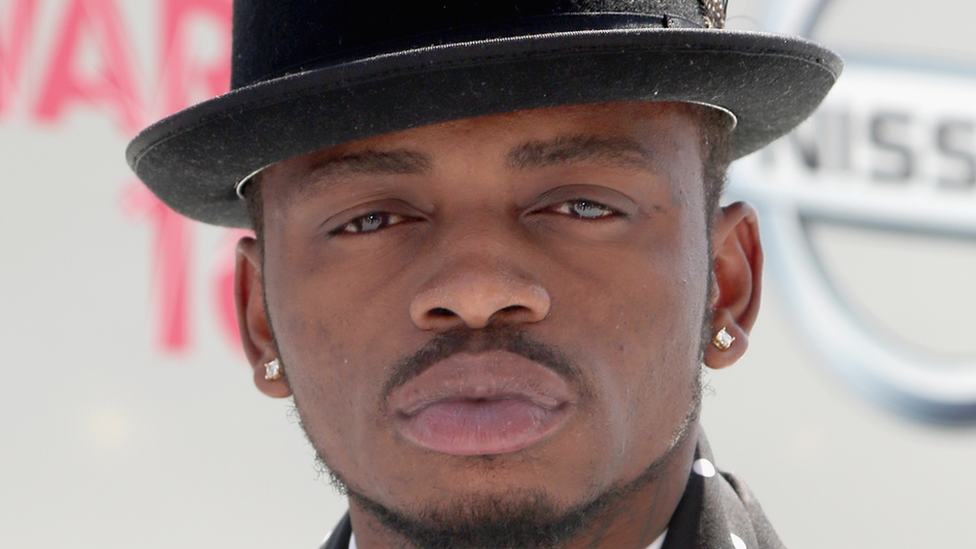Tanzania elections: Chadema's Freeman Mbowe arrested
- Published
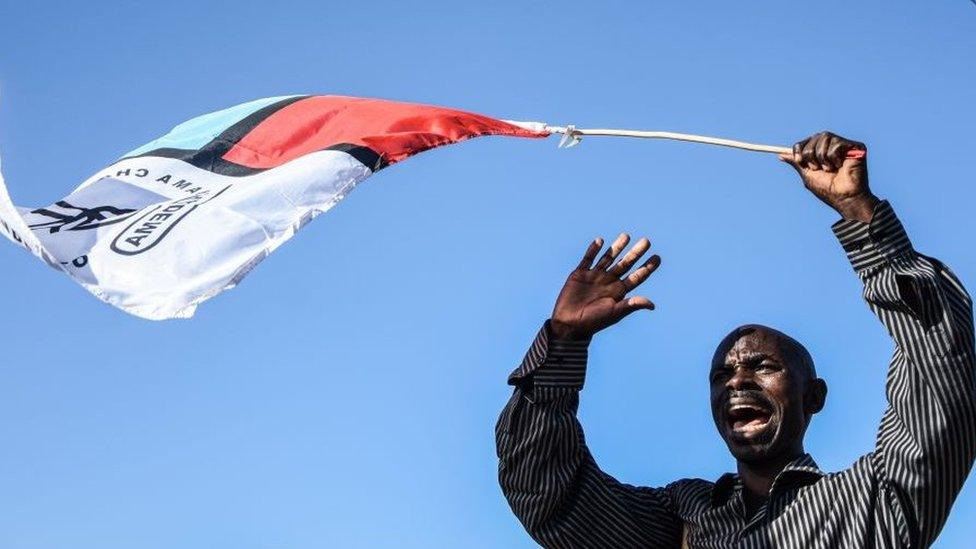
The Chadema party refuses to accept defeat in the election
Police in Tanzania have arrested the chairman of the main opposition party in the wake of a disputed election.
Freeman Mbowe was detained, along with two other Chadema leaders, for planning violent protests, police said.
Chadema presidential candidate Tundu Lissu was released after being briefly detained in the main city Dar es Salaam.
He had rejected President John Magufuli's victory in last week's election, saying the vote was rigged.
Chadema called for peaceful demonstrations to demand fresh elections.
The National Election Commission said Mr Magufuli had won a second term with 84% of the vote, compared with Mr Lissu's 13%. It denied the result was fraudulent.
What happened with the arrests?
Police briefly detained Mr Lissu after arresting him outside Umoja House, where foreign embassies are located.
Mr Lissu survived an assassination attempt in 2017 and returned from abroad in July to vie for the presidency.
Earlier, police confirmed the arrest of Chadema chairman Freeman Mbowe and two other party leaders, accusing them of planning violent protests.
Over the weekend, the leaders of Chadema, including Mr Mbowe, and another opposition party, ACT-Wazalendo, urged their supporters to come out in large numbers to peacefully protest and demand fresh elections.
Mr Lissu alleged last week that his party agents had been prevented from entering some polling stations where ballot boxes were tampered with.
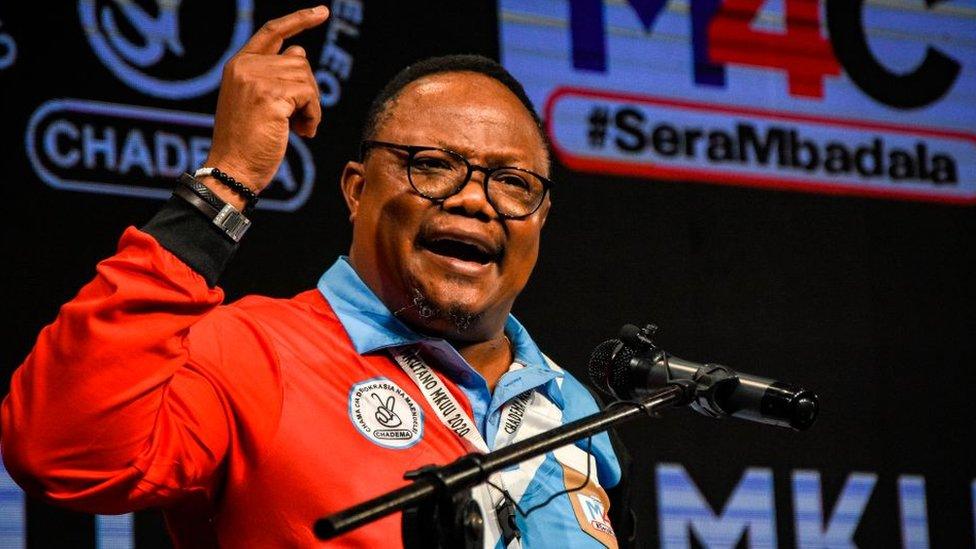
Tundu Lissu believes the election was stolen
Police have said that intelligence reports suggested that the opposition was planning to burn down markets and petrol stations.
ACT-Wazalendo leader Zitto Kabwe said on Saturday that the decision to protest was for "the future of our country".
"We cannot accept going back to a one-party system," he added.
The ruling CCM party governed Tanzania from 1977 to 1992 as the only legally allowed party, and has won every multiparty election since. It was formed in a merger of the Tanganyika African National Union, which governed from independence in 1961.
Mr Magufuli was first elected in 2015.
In last week's election for parliament, CCM won 256 constituency seats out of 264.

No sign of protesters, only riot police
Athuman Mtulya, BBC News, Dar es Salaam
In some ways, things have gone back to normal and this city, the country's commercial hub, is busy once again after last week's general election.
But a significant presence of anti-riot police in two parts of Dar es Salaam indicate that not everything is normal.
These were supposed to be the two starting points for the opposition demonstrations called for today, but by lunchtime there was no sign of the protesters.
Police have threatened to use force to detain anyone who takes part in street demonstrations.
Some are saying that now the election is over, things should go on as before, others though have expressed an interest in protesting but feared the reaction from the authorities.

How credible was the election?
The NEC has dismissed the opposition's claims of fraud and its head, Semistocles Kaijage, said allegations of fake ballot papers were unsubstantiated.
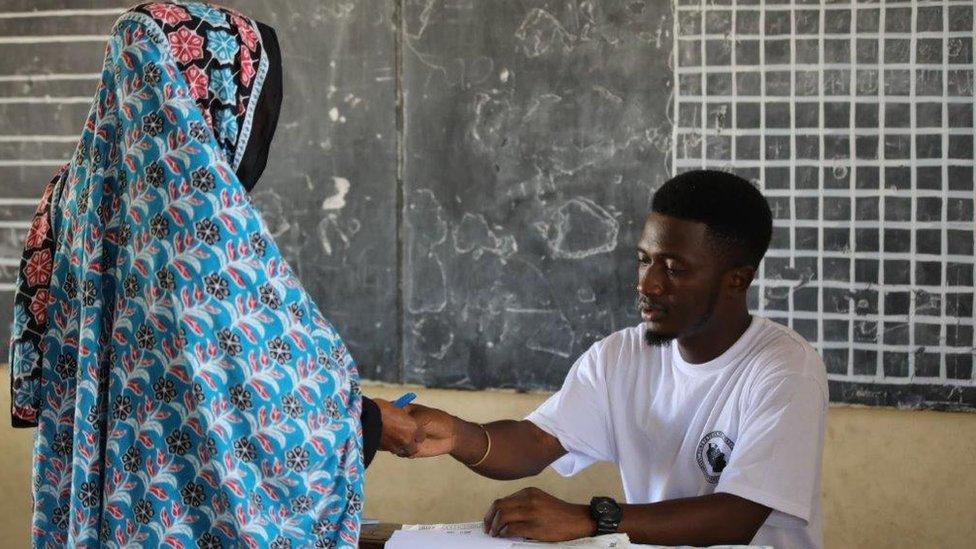
Presidential and parliamentary elections took place last week
And on Friday an observer mission from the East African Community said that the election was "conducted in a regular manner".
But an African Union observer mission, led by former Nigerian President Goodluck Jonathan, has not made a statement. Mr Jonathan left the country without giving a press conference.
Last week, the US embassy in Dar es Salaam said that "irregularities and the overwhelming margins of victory raise serious doubts about the credibility of the results... as well as concerns about the government of Tanzania's commitment to democratic values".
What happened in Zanzibar?
As well as taking part in the Tanzanian elections, voters on the semi-autonomous archipelago of Zanzibar also elected their own president, and the CCM candidate Hussein Mwinyi was declared the winner with 76% of the votes.
His main rival, ACT-Wazalendo's Maalim Seif Sharif got 19% - his biggest defeat in any presidential election he has taken part in. He also called for protests.
Mr Mwinyi was sworn in on Monday.
- Published2 November 2020
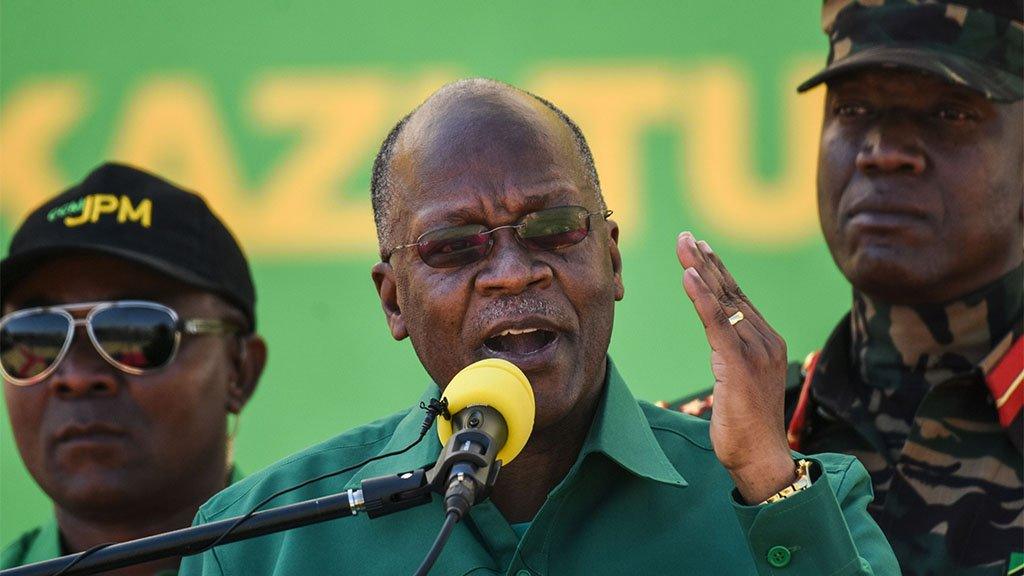
- Published23 October 2020

- Published26 October 2020
